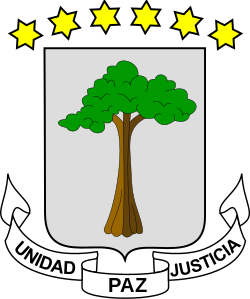 |
|---|
This article lists political parties in Equatorial Guinea . Equatorial Guinea is a dominant-party state with the Democratic Party of Equatorial Guinea in power. Although multiple parties are permitted by the Constitution of 1991, only one true opposition party operates openly, and there have been multiple accusations of electoral fraud.